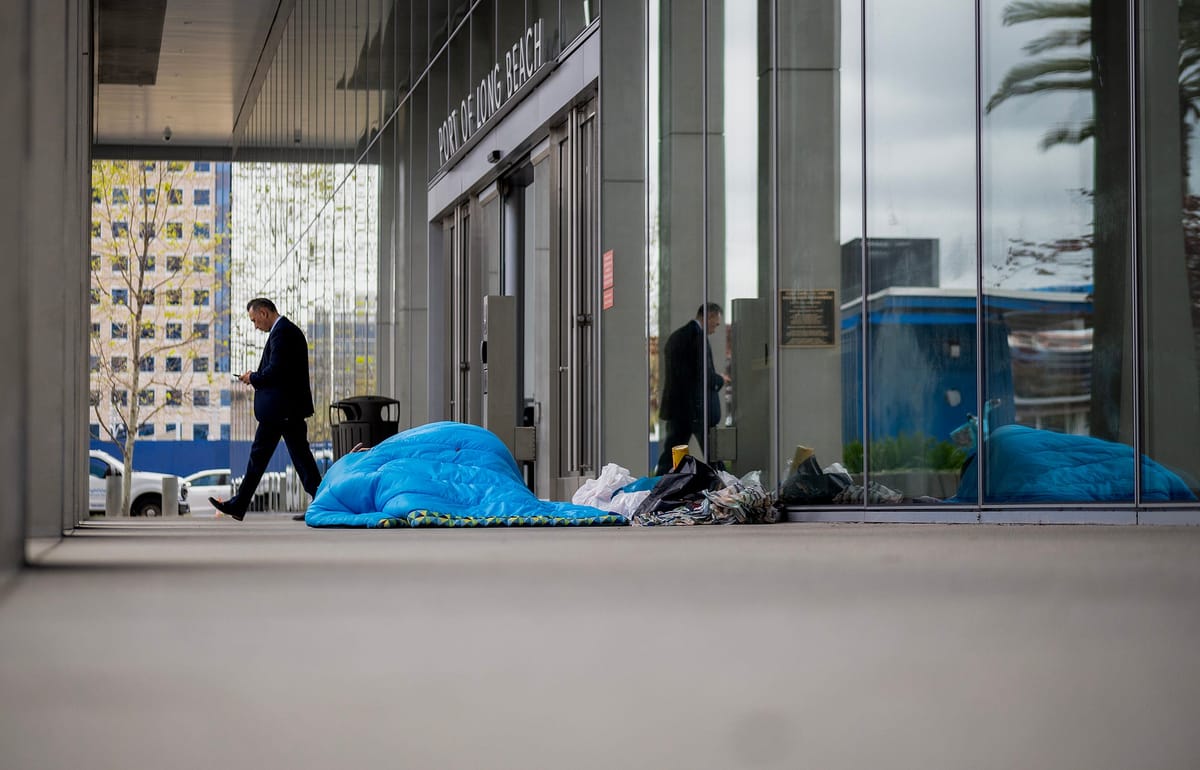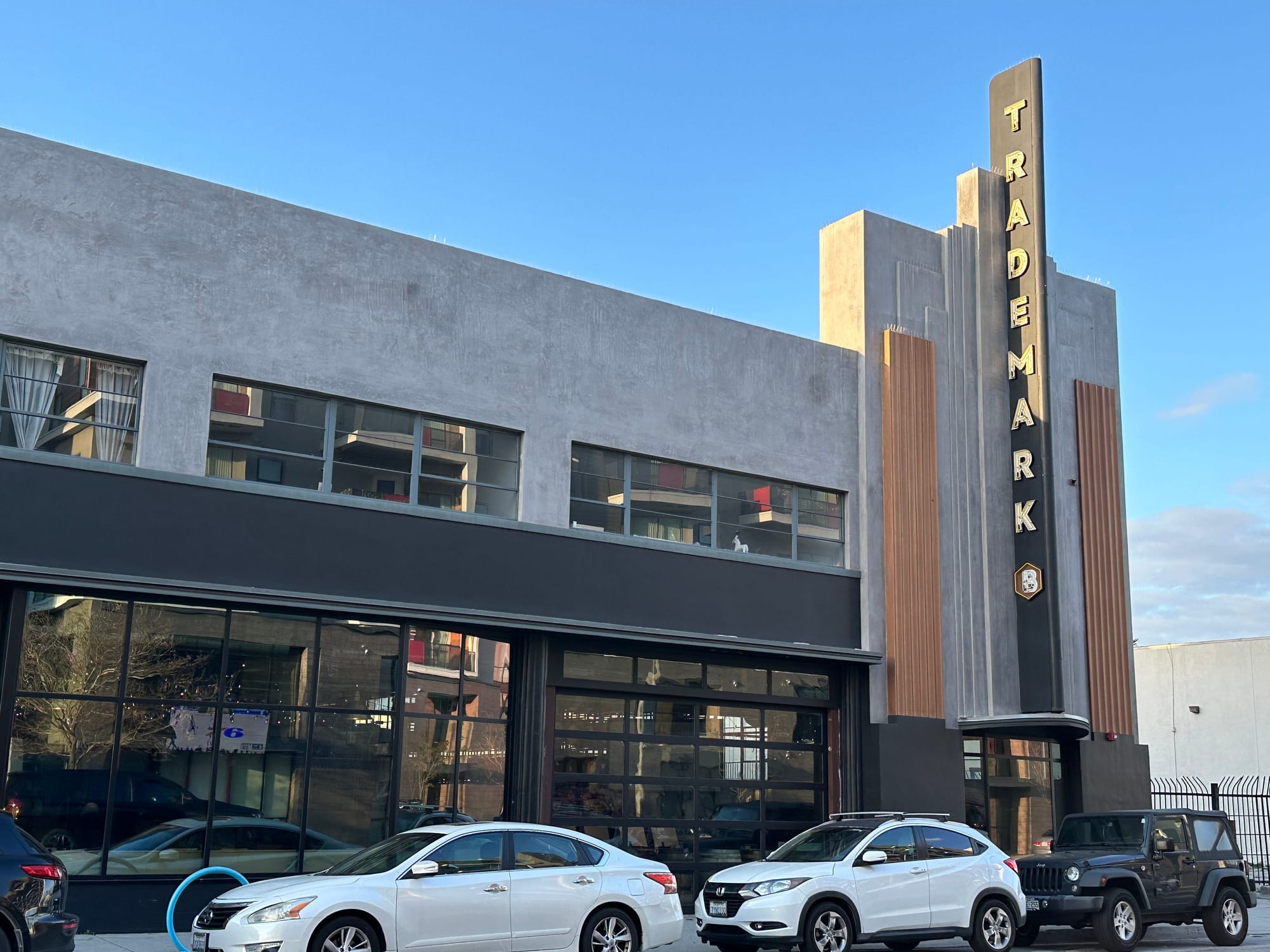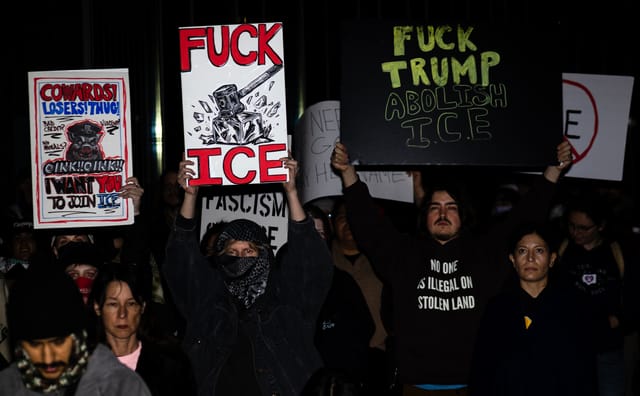Critically Speaking: You can't 'camp' in Grants Pass, Oregon
A Supreme Court ruling on homelessness could upend local enforcement.

Back when I was in journalism school at Cal State Long Beach one of my favorite courses was media law. I learned a lot about torts and writs and I got to re-litigate the case that got ABV percentages put on beer labels.
I also learned that May and June are showtime for the Supreme Court and its issuance of rulings.
Earlier this week I wrote about a Supreme Court decision on developer fees that may or may not have an effect here in Long Beach.
However, the court has a case on its docket that could dramatically change how the western United States is allowed to police homelessness, which could mean big changes for the thousands of unhoused people who live in Long Beach.
Established case law (Martin v. Boise) says that cities cannot criminalize homelessness without having an adequate amount of beds. That means if you have 1,000 unhoused people you’d need 1,000 shelter beds before you started to enforce any local laws that ban sleeping in public.
On a given night, Long Beach is about 2,000 beds short under the Martin v. Boise decision from being able to enforce a ban on sleeping in public.
That case was decided by the 9th Circuit Court of Appeals, which covers nine states including Idaho, Arizona California and Hawaii, but also extends to some U.S. territories like Guam.
But the case that could upend all, or parts of this law, originated in the town of Grants Pass, Oregon, which has a total population that’s smaller than any City Council district in Long Beach.
The town had passed a number of ordinances that made it increasingly difficult for unhoused people to exist in the city without breaking one of the local laws. One lawyer who sued the city argued that one of those ordinances essentially made it illegal to sleep on the sidewalk with a blanket, something that’s not an uncommon sight here in Long Beach.
While the town is small, the Grants Pass decision could be powerful.
It could provide cities that have pushed to do more, the legal right to establish more punitive laws aimed at the unhoused. Huntington Beach already has a law on its books that prohibits the use of tents that aren’t open on two sides. Could a favorable ruling in Grants Pass lead to a blanket ban on tents?
These are some of the questions running through advocates’ and government officials’ minds as they wait for the ruling. A long list of cities, counties — even Gov. Gavin Newsom — have signed and sent briefs supporting the court taking the issue up and providing “clarity” on what governments can and cannot do.
Long Beach was not one of them.
City officials have said Long Beach leads with a compassion-first approach but that doesn’t mean that reporters’ DMs aren’t routinely crowded with warnings from advocacy groups of upcoming sweeps of encampments.
Critically Speaking is published every Friday. Become a Watchdog today.
And just last month the city adopted a new ordinance that gives city libraries more power to ban people from its facilities for being too disruptive or smelly. There are also plans to build out a new addition at the Billie Jean King Main Library Downtown that would make it impossible for unhoused people to sleep around the library’s perimeter — beneath which they routinely take shelter.
The city issued a memo this week spelling out when it can and can’t enforce Long Beach’s laws around public camping. For instance, Long Beach doesn’t enforce a ban on people sleeping in their cars but it does enforce a ban on RVs parked in residential neighborhoods.
The memo said the city can also enforce its law of blocking public sidewalks or emergency services. An encampment is considered to be blocking a sidewalk in Long Beach if there is less than 36 inches of space available for a wheelchair to maneuver, according to city code.
What will cities do if they’re empowered to do more by the Supreme Court? Will Long Beach change its approach?
We’ll likely have to wait until at least the end of June for that answer. That’s when the court is expected to issue its ruling on the case.
What’s good in the LBC: Paint and Sip, a yacht rave, a class on Palestinian cuisine and more
Caitlin Antonios • Apr 25, 2024

April is almost over and that means we’ve been producing Watchdog for almost an entire month. We’d like to thank Jewels Long Beach and everyone who came out to our Hamburger’s Mary event last Friday. More events are in the works, so stay t…
Read full story →
What happened this week
Second Street is getting two more parklets. Well, the businesses got the permits to build them, anyway. Open Sesame and Aroma di Roma had both been approved by other city voting bodies last year to build their outdoor dining parklets, but the city’s new ordinance that requires a City Council hearing when these projects face opposition was triggered. Why? Because they faced opposition. Some residents in Belmont Shore have pushed back on these projects because they believe that taking away parking spaces to allow people to eat outside will exacerbate the already tight parking situation in the area. If you’ve
Something to keep an eye on
Next week is a “dark week” for the City Council, which means there won’t be a weekly meeting and I’ll (hopefully) get to spend some time doing literally anything else on Tuesday night. But what’s coming during the next scheduled meeting will be big. The proposed charter amendment that could change the city’s hiring processes is expected to be presented to the City Council for the first time. I’ve written about this issue fairly extensively in another publication, which we’re asking you not to read in solidarity with us striking journalists. City officials believe the change is necessary to speed up the city’s hiring to help chip away at a vacancy rate that stood at over 20% across all city departments last time I checked. The May 7 meeting will be the first in a series required by law to put the issue on the November ballot. If you have strong feelings about the Civil Service process, you might want to show up.
What is this?
Critically Speaking is a weekly civics column by Long Beach Watchdog reporter Jason Ruiz, who has been on strike from the Long Beach Post since March 21.
Donate to the Long Beach Media Guild’s relief fund today to help Ruiz stay in the fight to keep reporting the stories you can’t find anywhere else.
We need your support.
Subcribe to the Watchdog today.
The Long Beach Watchdog is owned by journalists, and paid for by readers like you. If independent, local reporting like the story you just read is important to you, support our work by becoming a subscriber.





